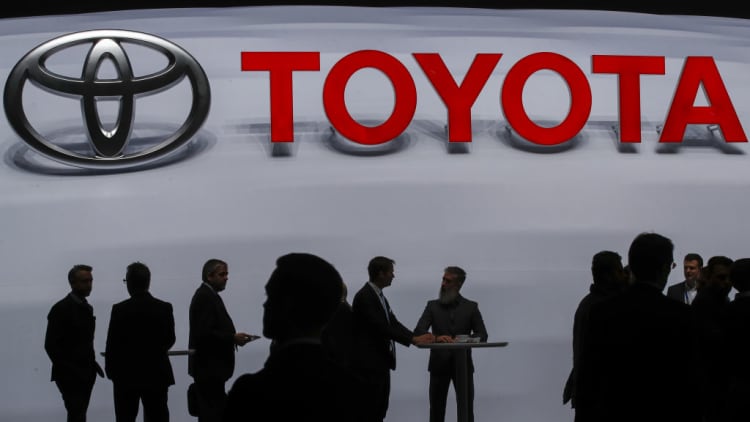
The U.S. Department of Commerce started an investigation into automobile imports to determine whether they "threaten to impair the national security" of the United States, the agency said in a statement on Wednesday night local time.
The surprise announcement comes at a time of worsening friction over trade between the United States and other countries — including close allies — with tariffs, threats of tariffs and complaints with the World Trade Organization flying back and forth.
The new U.S. probe will be carried out under Section 232 of the Trade Expansion Act of 1962. That section of the law authorizes the secretary of Commerce to determine "the effects of imports of any article on the national security of the United States."
The United States carries out a brisk trade in automobile exports and imports, primarily with traditionally friendly countries including Japan, Germany and South Korea.
U.S.-based automakers and auto parts makers also manufacture products in Mexico and Canada and then import them into the United States.
"I wonder how much this has got to do ... with Mexico and Canada," John Woods, CIO of Credit Suisse, told CNBC's Bernie Lo. "I suspect there is some leverage going on" that's designed to increase pressure on those countries as they try to renegotiate the North American Free Trade Agreement with the United States.
Japanese and Korean shares take a hit
New York-traded shares of Toyota Motor were lower in extended trading following the announcement.
In Tokyo, Japanese automakers, which had been under pressure from the firmer yen, also saw declines: Toyota Motor and Honda Motor were both lower on their home market by more than 2 percent.
Mitsubishi Motors and Mazda Motor were hit especially hard, both falling more than 4 percent.
Stocks of South Korean automakers traded broadly lower in Seoul on Thursday, with Hyundai Motor and Kia Motors sliding.
'Weaken the internal economy'
"There is evidence suggesting that, for decades, imports from abroad have eroded our domestic auto industry," Commerce Secretary Wilbur Ross said in a statement.
The Commerce Department announcement said the investigation "will consider whether the decline of domestic automobile and automotive parts production threatens to weaken the internal economy of the United States, including by potentially reducing research, development, and jobs for skilled workers in connected vehicle systems, autonomous vehicles, fuel cells, electric motors and storage, advanced manufacturing processes, and other cutting-edge technologies."
The department claimed in the statement that imported passenger vehicles account for 48 percent of passenger vehicles sold in the United States, up from 32 percent 20 years ago, while "employment in motor vehicle production declined by 22 percent."
Minutes before the announcement, the White House released a statement saying that President Donald Trump asked Ross for the probe.
"Core industries such as automobiles and automotive parts are critical to our strength as a Nation," the White House statement said.
Commerce Secretary Ross sent a letter to U.S. Secretary of Defense James Mattis to inform him of the investigation.


